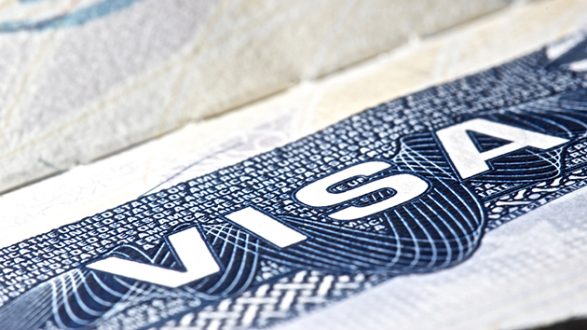
 iStock/Thinkstock(WASHINGTON) — The Trump administration’s travel ban, which was mandated by executive order, will partially go into effect Thursday evening at 8:00 p.m. ET, the State Department announced on Thursday.
iStock/Thinkstock(WASHINGTON) — The Trump administration’s travel ban, which was mandated by executive order, will partially go into effect Thursday evening at 8:00 p.m. ET, the State Department announced on Thursday.
Under the new guidance, people seeking visas to travel to the United States from six restricted countries will have to prove a “bona fide relationship” to someone in the U.S.
A family relationship is defined as a parent, spouses, a child, an adult son or daughter, son-in-law, daughter-in-law or siblings, according to the administration. Any other relationship will have to be revived on a “case-by-case” basis.
Asked why a grandparent who raised their grandchild doesn’t count, a senior administration official said, “We’ll look to see if the applicant qualifies under the exemptions. If they want to articulate why we should waive them, we’ll look at those case by case, but it won’t be the relationship that will be the determining factor.”
Under the executive order, there is a 120-day suspension of all refugees, as well as a 50,000 cap for Fiscal Year 2017, but refugees proving one of these relationships will also be exempt.
As of Wednesday night, 49,009 refugees have already been admitted for the year.
Individuals from the six countries may also qualify for a visa if they have an established connection to various entities in the U.S., such as students admitted to a university or visiting lecturers.
Individual consular officers, who review visa applications and grant visas overseas, would determine whether an applicant meets the new standards.
The State Department said it does not plan to cancel previously scheduled visa appointments, but any applicant with an interview after 8 p.m. ET Thursday would need to meet the new requirements.
People who have visas and show up at airports or border checkpoints will be allowed to be admitted, unless there is an unrelated reason that they wouldn’t be admitted, according to the Department of Homeland Security.
“We expect business as usual at ports of entry starting at 8:00 pm tonight,” said a senior administration official.
On Monday, the Supreme Court said it would allow parts of President Donald Trump’s travel ban to go into effect and that it will hear arguments in the case in October.
The executive order, which was signed by Trump in March, had been blocked by lower courts.
The Supreme Court’s ruling allows the administration to temporarily ban entry into the U.S. of citizens of six Muslim-majority nations — Iran, Libya, Somalia, Sudan, Syria and Yemen — with an exception for people who have what the court called “any bona fide relationship with a person or entity in the United States.”
Copyright © 2017, ABC Radio. All rights reserved.










